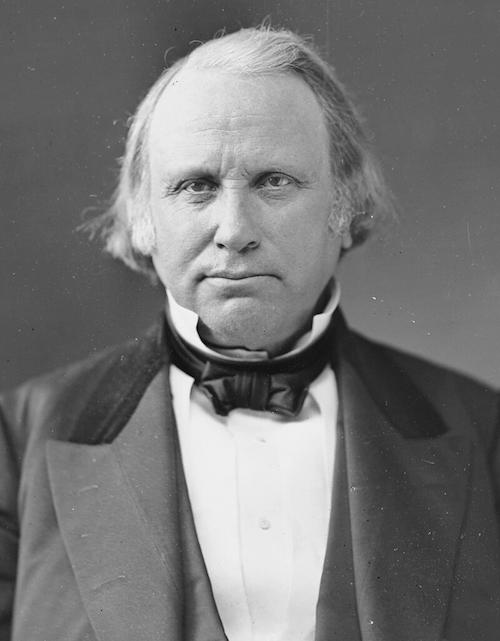Henry Wilson was the 18th Vice President of the United States, serving under President Ulysses S. Grant from 1873 to 1875.
Early Life
Wilson was born on February 16, 1812 and given the name Jeremiah Jones Colbath. His impoverished family lived in Farmington, New Hampshire. His early years were particularly difficult, as he spent a decade of indentured service to a neighboring family. There is speculation as to why Wilson changed his name, but at 21, he changed it to Henry Wilson.
Unable to find work in New Hampshire, Wilson walked over a hundred miles to Natick, Massachusetts, where he found employment as a shoemaker and eventually opened his own shop. He educated himself and participated in the Natick Debating Society. During a trip to Washington, D.C., he witnessed Congressional debates on slavery. Appalled by the widespread support of slavery in the South, he committed himself fully to emancipation.
Early Career
He joined the state militia in 1842, rising to the rank of general of the Massachusetts Militia’s 3rd Brigade. In 1840, he was elected to the Massachusetts House of Representatives and then in 1844 to the State Senate as a Whig. In 1855, Wilson was elected to the U.S. Senate, garnering support from three political parties: the Free-Soilers, Know-Nothings, and anti-slavery Democrats. Wilson later switched his allegiance to the Republican Party and served in the Senate from 1855 to 1873.
As a Senator, Wilson championed rights for African-Americans. He was such a staunch advocate for abolishing slavery that he was challenged two separate times to duels by fellow congressmen. He was Chairman of the Committee on Military Affairs during the Civil War, in which he played a pivotal role in shaping legislation that impacted the Army and Navy.
However, his most famous legislation consisted of introducing and supporting bills that funded education for African-Americans, equal military pay, and the establishment of the National Academy of Sciences. On December 16, 1861, Wilson introduced the DC Emancipation Act, which outlawed slavery in Washington, D.C. Also, in 1862, Wilson spearheaded initiatives to enlist African-Americans into military service. Finally, the Civil Rights Act of 1866 is essentially identical to a bill proposed by Wilson after the ratification of the 13th Amendment.
Vice Presidency
Wilson ran for Vice President in the 1868 but lost to Schuyler Colfax. However, in 1872, Wilson’s reputation as a strong supporter of civil rights, voting rights for women, federal education aid, regulation of business, and the prohibition of alcohol propelled him to the Republican nomination for Grant’s second term. As Vice President, Wilson oversaw the passage of the Civil Rights Act of 1875. He was gravely ill for most of his service and passed away on November 22, 1875 while working on Capitol Hill. In recognition of his policies and contributions, he was honored by being laid in state at the Capitol Rotunda.






